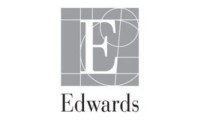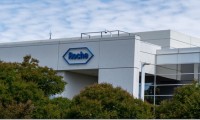-
Listing Meeting of Domestic Sacubitril Valsartan Yixintan® was Successfully Held
- Source: drugdu
- 116
- December 19, 2023
-
Edwards plans to spin off critical care business next year
- Source: drugdu
- 101
- December 11, 2023
-
Eli Lilly Announces Availability of Obesity Drug Zepbound at US Pharmacies
- Source: drugdu
- 184
- December 7, 2023
-
Roche Jumps into Lucrative Weight-Loss Space with $2.7B Carmot Buy
- Source: drugdu
- 105
- December 6, 2023
-
Amgen and MSD-backed start-up wins $10m for drug and device development
- Source: drugdu
- 141
- December 2, 2023
-
MS Expands Cardio Partnership with Avidity in Potential $2.3B Deal
- Source: drugdu
- 105
- November 30, 2023
-
The Impact of US Drug Shortages on the Supply Chain
- Source: drugdu
- 108
- November 23, 2023
-
Playing in the Hot Obesity Market, Carmot Braves Chilly IPO Waters
- Source: drugdu
- 115
- November 22, 2023
-
Outclassed by Eliquis, Bayer Halts Atrial Fibrillation Study of Factor XIa Inhibitor
- Source: drugdu
- 126
- November 22, 2023
-
Lilly Notches Second Cholesterol Win with RNA Silencer
- Source: drugdu
- 116
- November 15, 2023
your submission has already been received.
OK
Subscribe
Please enter a valid Email address!
Submit
The most relevant industry news & insight will be sent to you every two weeks.













